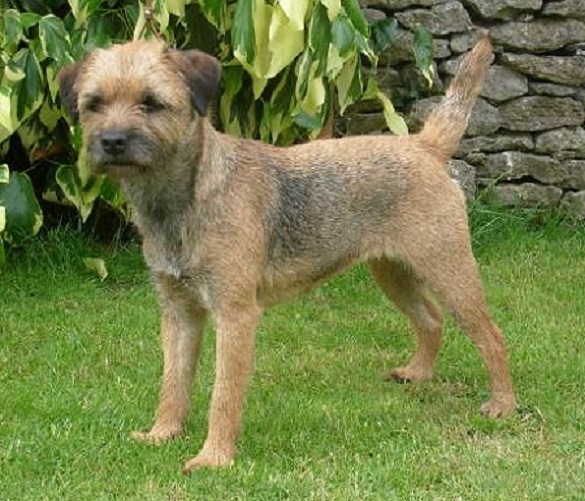
Border Terrier

Navigate through the tabs
Navigate through the tabs below to view the breed's info of your interest.
The breed's info is divided in four sections; namely:
the breed's history ,
the breed's main stats ,
the dog's potential health issues
and finally, how the breed scored in 26 different categories.
All the above information should give you a respectively good overview for the dog of your interest.
Dog Breed's Main Info
The Breed's History:
Originally the Border Terrier was referred to as the Coquetdale Terrier or Redesdale Terrier from the area in which it evolved, but by the late 1800s it was generally known as the Border Terrier, probably because of its long history with the Border Hunt in Northumberland. It shares its ancestry with that of the Bedlington Terrier and the Dandie Dinmont Terrier. It was recognised as a breed by the Kennel Club in 1920, the same year The Border Terrier Club was formed.
Their original purpose was to bolt foxes which had gone to ground. They were also used to kill rodents, but they have been used to hunt otters and badgers too.
The first Kennel Club Border Terrier ever registered was The Moss Trooper, a dog sired by Jacob Robson's Chip in 1912 and registered in the Kennel Club's Any Other Variety listing in 1913. The Border Terrier was rejected for formal Kennel Club recognition in 1914, but won its slot in 1920, with the first standard being written by Jacob Robson and John Dodd. Jasper Dodd was made first President of the Club.
Country of Origin:
Scotland / England
Breed Group:
Terrier
Height:
10 to 11 inches (25,4 to 27,94 cm)
Weight:
11 to 15 pounds (4,98 to 6,81 Kg)
Life Span:
12 to 15 years
Potential Health Issues:
Hip Dysplasia,
Heart Defects,
Malocclusions,
Seizures,
Patellar Luxation,
Hypothyroidism,
Cryptorchidism
Adaptability
Apartment Living:
First Time Owners:
Sensitivity:
Being Alone:
Cold Weather:
Hot Weather:
Friendliness
Affection With Family:
With Kids:
With Dogs:
With Strangers:
Health and Grooming
Shedding:
Drooling:
Easy To Groom:
Overall Health:
Weight Gain Potential:
Size:
Training
Easiness:
Intelligence:
Mouthiness:
Prey Drive:
Barking or Howling:
Wanderlust:
Need For Exercise
Energy Level:
Intensity:
Exercise Needs:
Playfulness:
Our Mobile Application
Check out Our Mobile Application "Dog Breeds Central"
